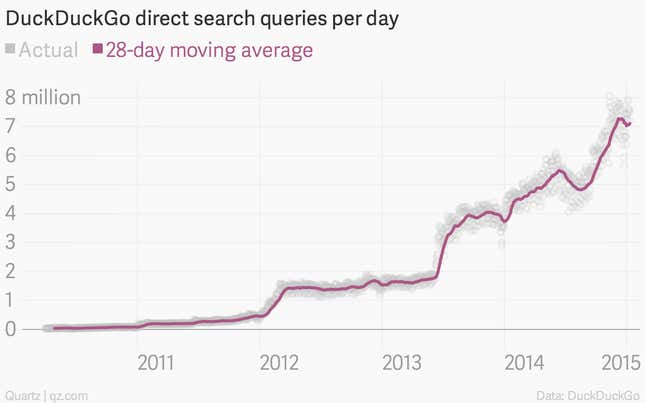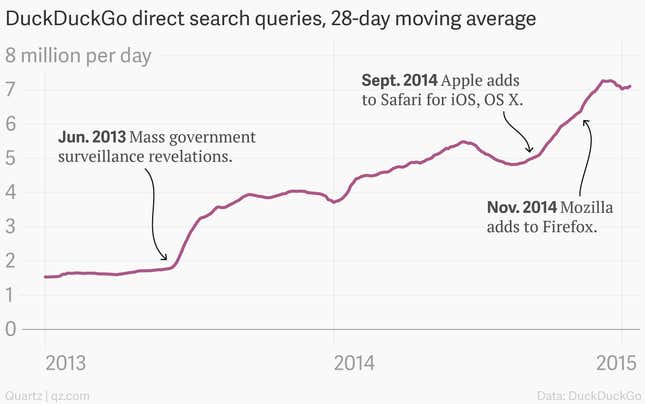One of the few companies competing with Google in the web search industry is DuckDuckGo, which tries to stand out by pledging not to track its users. Specifically, DuckDuckGo doesn’t share its users’ search queries with other sites, doesn’t store their search histories, and doesn’t store any of their computer or location information—things many other search engines do to boost their advertising efforts.
While DuckDuckGo is still a fraction of Google’s size, it just wrapped up its second consecutive year of impressive growth. (One of the company’s transparency measures is to publish aggregate daily usage statistics.)

At the end of 2014, DuckDuckGo was receiving about 7 million direct search queries per day, roughly double the amount it received a year prior. But if you look more closely, DuckDuckGo had a huge end of the year, after more modest growth in the beginning.
Why? Two big distribution deals seem to have played key roles. In September, Apple started including DuckDuckGo as a search option in its Safari browser for iOS and OS X. (Google is still the default option.) Then in November, Mozilla added DuckDuckGo as a search option for its Firefox browser.
“DuckDuckGo has significantly increased its user base from both integrations,” CEO Gabriel Weinberg, who launched the company in 2008, tells Quartz. “Though the exact amount is unclear since we don’t track people.”

A look at the company’s public stats suggests both moves contributed to an acceleration of growth. Over the first eight months of 2014, DuckDuckGo’s average month-over-month query growth was 3.5%. Over the last four months of the year, it was an average 10.2%—roughly triple.
The company’s steepest growth driver to date, however, still seems to be the mid-2013 revelations of mass government internet surveillance. Google Chrome, for what it’s worth, still doesn’t include DuckDuckGo as a pre-installed search option.
